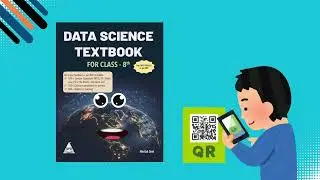Natural Language Processing (NLP) Explanation of Chapter13 NLP Tools and Frameworks
Welcome to Chapter 13 of our "Natural Language Processing (NLP) Interview Practice Q&A" series! In this episode, we explore NLP Tools and Frameworks, essential for building, training, and deploying state-of-the-art NLP models. This chapter provides an in-depth look at popular tools and libraries that streamline NLP workflows, helping you prepare for interviews and enhance your hands-on experience.
What You'll Learn:
Introduction to NLP Tools and Frameworks:
Understand the significance of tools and frameworks in accelerating NLP development.
Explore the evolution of NLP frameworks, from rule-based systems to deep learning libraries.
Key NLP Tools and Frameworks:
NLTK (Natural Language Toolkit):
Learn how this library supports tasks like tokenization, stemming, lemmatization, and parsing.
spaCy:
Discover how spaCy simplifies NLP pipelines for named entity recognition (NER), dependency parsing, and more.
Hugging Face Transformers:
Explore pre-trained models like BERT, GPT, and T5 and how to fine-tune them for specific NLP tasks.
TensorFlow and PyTorch:
Understand how these deep learning frameworks enable custom NLP model development.
OpenNLP:
Learn about Apache’s NLP toolkit for language processing tasks.
Stanford CoreNLP:
Discover its robust tools for syntactic and semantic analysis.
Gensim:
Dive into this framework for topic modeling and word embedding generation.
Advanced Tools for NLP:
Rasa: Learn how to build conversational agents and chatbots.
AllenNLP: Explore a research-focused framework for deep learning-based NLP tasks.
FastText: Understand how Facebook’s FastText enables efficient word embeddings and text classification.
Choosing the Right Tool:
Compare tools based on ease of use, scalability, and suitability for specific tasks.
Learn how to integrate multiple tools into a seamless NLP pipeline.
Applications of NLP Frameworks:
Build text classification models, perform sentiment analysis, and generate summaries.
Automate customer support using chatbots and conversational agents.
Develop tools for information retrieval, translation, and more.
Challenges and Best Practices:
Address issues like compatibility, scalability, and performance in NLP pipelines.
Understand the importance of open-source contributions and community support.
Interview Practice Q&A:
Prepare for interview questions on comparing frameworks, selecting tools for specific tasks, and optimizing NLP workflows.
Gain insights into practical coding challenges, such as building an NLP pipeline using Python and libraries like spaCy or Hugging Face Transformers.
Why NLP Tools and Frameworks Matter:
Proficiency in NLP tools accelerates development and deployment of efficient models.
Familiarity with frameworks is a valuable skill for roles in data science, AI development, and computational linguistics.
Stay Connected:
Don’t miss upcoming chapters as we explore more advanced NLP topics and provide actionable interview preparation tips.
Subscribe to our channel and turn on notifications to stay updated!































